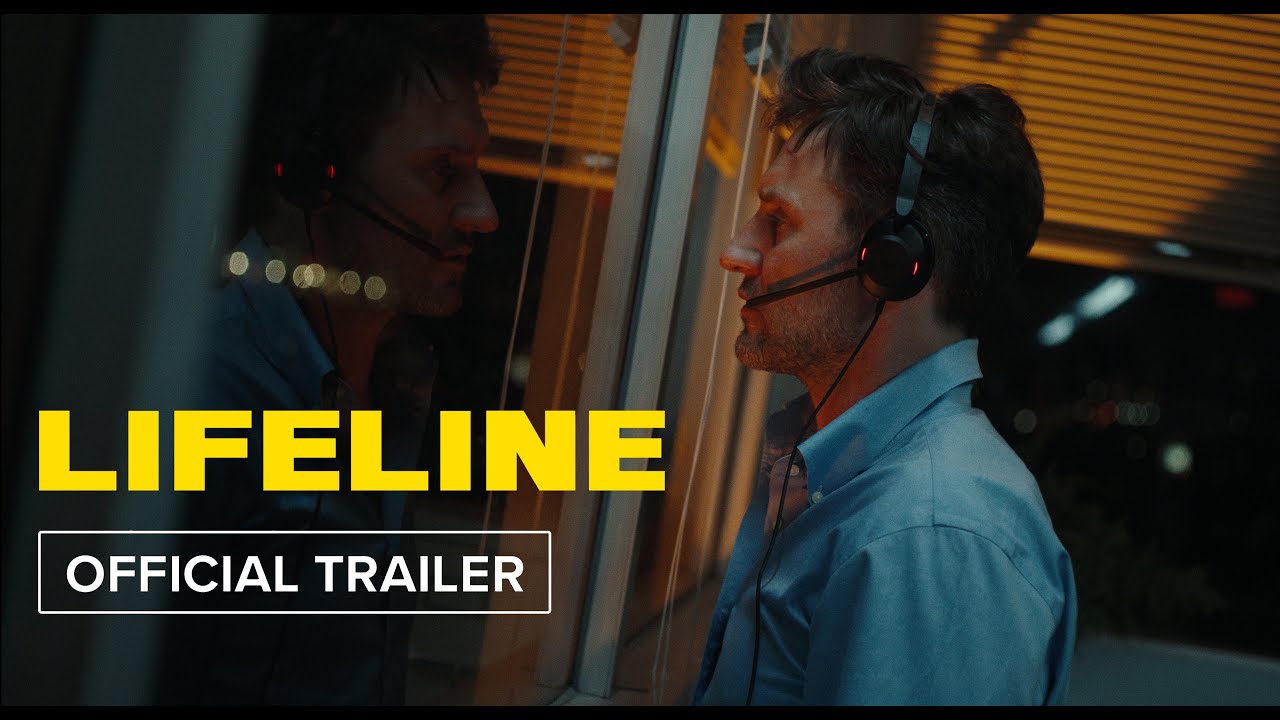[ad_1]
Detailed Summary: Lifeline is a psychological thriller that follows Steven Thomas, a late-night suicide hotline operator. His routine shift takes a harrowing turn when he receives a call from someone claiming to be him, possessing intimate knowledge of his life. The caller threatens to end his life within the hour, propelling Steven into a tense, emotional race against time to confront his deepest fears and uncover the truth before it’s too late.
Plot Summary: Set on New Year’s Eve, the film unfolds in real-time as Steven, portrayed by Josh Stewart, navigates a series of distressing calls at the crisis center. The narrative intensifies when a caller mirrors Steven’s own experiences, forcing him to delve into his past traumas and question his reality. The story culminates in a twist that challenges perceptions and underscores the theme of self-confrontation.
Director’s Vision: Feras Alfuqaha sought a story that resonated deeply, leading him to Lifeline. He emphasized the film’s originality and emotional depth, collaborating closely with writer Brady Morell to refine the script. Alfuqaha aimed to create a cinematic experience that was both gripping and emotionally authentic, focusing on the protagonist’s internal struggles and the moral dilemmas faced.
-
Identity and Self-Reflection: The film explores the concept of confronting one’s own identity and past.
-
Mental Health: It delves into the complexities of mental health, trauma, and the importance of seeking help.
-
Time and Urgency: The real-time narrative heightens the sense of urgency and tension.
-
Reality vs. Perception: Challenges the boundaries between what’s real and what’s perceived.
-
Strong Performances: Josh Stewart delivers a compelling portrayal of Steven, capturing the character’s emotional depth.
-
Tight Narrative: The real-time storytelling keeps viewers engaged and heightens suspense.
-
Thought-Provoking Themes: Addresses significant issues like mental health and self-identity.
-
Effective Use of Limited Settings: The confined setting enhances the film’s claustrophobic tension.
Summary Short: Lifeline is a gripping psychological thriller that delves into the depths of self-identity and mental health, delivering a tense, real-time narrative that keeps audiences on edge.
-
Film Threat: Described the film as “high-concept sci-fi, but it’s intensely dramatic and engagingly mysterious.”
-
Dread Central: Praised it as a “twisty lo-fi tale that feels like ‘The Twilight Zone’,” highlighting its effective execution despite a modest budget.
-
Voices From The Balcony: Noted the film’s blend of psychological drama with touches of supernatural fantasy, introducing intriguing sci-fi adjacent elements.
-
Rotten Tomatoes: Holds a 67% approval rating based on 6 critic reviews, with an average rating of 6.5/10.
-
Letterboxd: Users have given it an average rating of 3.2 out of 5, praising its emotional depth and performances.
Production:The film was produced by Basma Pictures, with Feras Alfuqaha and Leal Naim serving as producers. It was shot primarily in a single location to enhance the story’s claustrophobic tension.
Why to Recommend This Movie:
-
Engaging Storyline: The real-time narrative keeps viewers invested throughout.
-
Relevant Themes: Addresses important topics like mental health and self-identity.
-
Strong Performances: Josh Stewart’s portrayal adds depth to the character’s journey.
-
Innovative Direction: Feras Alfuqaha’s approach brings a fresh perspective to psychological thrillers.
-
Thought-Provoking: Encourages viewers to reflect on personal identity and choices.
-
Suspenseful: Maintains tension and intrigue from start to finish.
-
Emotional Depth: Explores complex emotions and moral dilemmas.
-
Compact Runtime: At 80 minutes, it’s a concise yet impactful viewing experience.
What Movie Trend Film is Following: Lifeline aligns with the trend of psychological thrillers that explore identity and reality within confined settings, reminiscent of films like Phone Booth and Locke.
What Big Social Trend is Following: The film taps into the growing discourse on mental
and the challenges of self-reflection in an increasingly disconnected world. It also mirrors society’s fascination with narratives that blur the line between perception and reality.
Final Verdict: Lifeline is a taut, thought-provoking psychological thriller that captivates with its real-time narrative and powerful performance by Josh Stewart. Director Feras Alfuqaha delivers a compelling exploration of identity, morality, and human connection, proving that even within a contained setting, a story can resonate deeply and leave a lasting impression.
Recommendations for Filmmakers:
-
Experiment with Real-Time Storytelling: Maintaining a tight narrative timeline heightens tension and creates a sense of immediacy.
-
Focus on Internal Conflict: Exploring a protagonist’s psychological struggles allows for a deeper emotional impact.
-
Make Effective Use of Limited Settings: A single location can intensify the atmosphere and draw the audience’s attention to the character’s journey.
-
Collaborate Closely with Talent: Strong performances come from a clear vision and a director’s ability to communicate that vision to the cast.
Recommendations for the Movie Industry:
-
Support Emerging Directors :Fostering new voices like Feras Alfuqaha ensures a steady stream of fresh, innovative stories.
-
Highlight Stories About Mental Health: Films that address psychological challenges contribute to cultural dialogue and social understanding.
-
Promote Shorter, Focused Films: A compact runtime can make a film more accessible and appealing to diverse audiences.
-
Invest in Psychological Thrillers: Thought-provoking thrillers often have broad appeal and generate discussions long after the credits roll.
[ad_2]
Source link
